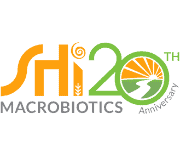Sesame seeds are common food used in macrobiotic practice. They are very versatile when it comes to enhancing any dish. Sesame paste, also known as tahini, is essential for hummus and sesame noodles. And, sesame oil is fantastic for cooking with or drizzling over a variety of dishes. Not only is sesame seeds delicious but they have amazing health benefits. Let’s take a look on how you can include sesame seeds in your macrobiotic diet!
Nutrition and Health Benefits of Sesame Seeds
Sesame seeds are an ancient plant-based food that have been used in culinary preparations and traditional medicine. They are known for their preventative, nutritive, and curative properties. They also just taste really good.
Sesame seeds and derivative products are rich in mono-unsaturated fatty acids that are essential for cardiovascular health. They are also a good source of concentrated protein and dietary fiber. Dietary fiber is necessary for optimal digestive health.
These tiny seeds are high in a variety of B vitamins, notably folate and niacin. Sesame seeds are incredibly rich sources of many essential minerals, such as calcium, iron, manganese, magnesium, selenium, and zinc that are all required for musculoskeletal, hormonal, and heart support.
That is a lot of nutrition packed into such little morsels. You can’t underestimate the humble sesame seed. That is why sesame seeds are an important part of the macrobiotic diet.
Sesame Seed Products
Tahini
Roasted Tahini is a seed butter made from hulled toasted sesame seeds. It is rich in taste and a good natural source of calcium. Great to use as a condiment on a sandwich.
Sesame Oil
Sesame oil is drier and lighter than olive oil. When buying sesame oil, find one that is high quality, mechanically pressed and unrefined. High quality sesame oil increases our ability to absorb minerals and vitamins.
Sesame Seeds and the Macrobiotic Diet
Macrobiotics is not just a diet. It is a conscious choice that aims to balance health by incorporating an active lifestyle paired with eating a nourishing plant-based diet. We all have imbalances that lean in the direction of more yin or more yang. The idea is to bring these yin and yang energies into equilibrium. This is achieved through diet, exercise, good sleep hygiene, community, and much more. Macrobiotics is considered the path to longevity. This way of life also has a positive effect on the carbon footprint of our planetary resources.
Macrobiotics founder, George Ohsawa, encouraged consuming indigenous, locally grown, and seasonal foods. The modern macrobiotic diet also encourages that these foods be free of pesticides, chemicals, and GMOs. Organic sesame seeds are cultivated around the world, making sesame seeds a universal macrobiotic food.
Want to learn more about health and macrobiotics? Take one of our online macrobiotic courses.



SHI relies on your support.
This content is possible because of donations from people like you. If you valued this article then take a moment and make a donation to benefit the SHI community. Any amount truly makes a difference.
Give $25, $50, $75, $100 or a different amount that makes sense for you.
Donate Now